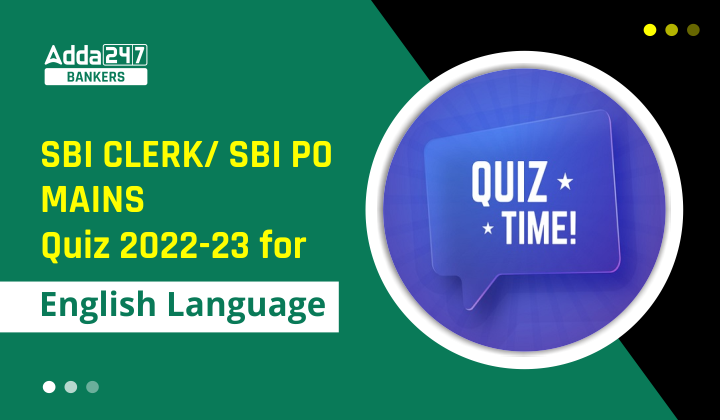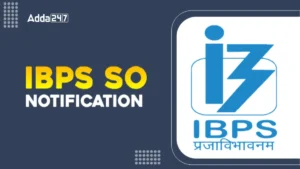Directions (1-5): In each question, a highlighted word is used in three different ways, numbered to (I) to (III), Choose the option in which the usage of the word is Incorrect or Inappropriate..
Q1. Meet
I.When she didn’t arrive on time, we were worried that she might have met to an accident.
II.We can’t comply with all your requests, but we can meet you halfway.
III.We only met one other car on the road.
(a)Only I
(b)Only II
(c) Only III
(d)Both I and II
(e) Both II and I
Q2. Question
I.There is considerable question about the actual value of the property.
II.There is no question that he was one of the greatest players of the game.
III.Is success all just a questioning of being in the right place at the right time?
(a)Only I
(b)Only II
(c) Only III
(d)Both I and II
(e) Both II and III
Q3. Among
I.The property was divided equally among the four survivors.
II.They compared several new cars but found few differences amonged them.
III.The people of the town were frightened to think that a killer might be living among them.
(a)Only I
(b)Only II
(c) Only III
(d)Both I and II
(e) Both II and III
Q4. Across
I.The disease spread quickly across the country.
II.They traveled back and forth acrossed the border.
III. The accident happened just across the state line.
(a)Only I
(b)Only II
(c) Only III
(d)Both I and II
(e) Both II and III
Q5. Happen
I.Do you happen to know the way to the station?
II.An odd thing happen to me on my way to the office last week.
III.I happen to think that the movie was actually very good.
(a)Only I
(b)Only II
(c) Only III
(d)Both I and II
(e) Both II and III
Directions (6-15): In each question, there is a pair of words/phrases that highlighted. From the highlighted word(s)/phrase(s), select the most appropriate word(s)/phrase(s) to form correct sentences. Then, from the options given, choose the best one.
Q6.
I.For reasons that I can’t reveal, I advise(A)/advice (B)you to maroon Zhark on an uninhabited planet rather than expose him to the humiliation of a public execution.
II.Volcanoes can temporarily affect(A)/ effect(B) the atmosphere.
III.The revised edition of Nelson’s book contains a new afterword(A)/Afterward(B) on hurricane Katrina’s devastation of the city.
(a)aab
(b)bab
(c)bba
(d)aaa
(e) abb
Q7.
(I)It is the averse(A)/adverse(B) effect of television viewing on the lives of so many people that makes it feel like a serious addiction.
(II)According to the National Safety Council, there were more than 600 accidental(A)/incidental(B) shooting deaths in the United States last year.
(III)The lawyer’s indiscreet(A)/indiscrete(B) remarks to the media provoked an angry response from the judge.
(a)bab
(b)aba
(c)abb
(d)baa
(e) aaa
Q8.
(I)I didn’t mean to imply(A)/ infer(B) that I didn’t like it. On the contrary, I think it’s beautiful. It’s just different, that’s all.
(II)”Young man,” my father said, “there is a big difference between you and I(A)/me(B).”
(III)Jimmy left for school early the next morning, hoping(A)/hopping(B) to avoid Benny and his buddies.
(a)bbb
(b)bba
(c)aba
(d)aab
(e)baa
Q9.
(I)An unemployed man with a metal detector stumbled upon one of the greatest horde(A)/hoards(B) of Anglo-Saxon treasure ever discovered in Britain.
(II)Dad memorized historical(A)/historic(B) facts, like the years each president served in office, and he’d repeat these dates in an effort to calm himself.
(III)Lily and her team jibed(A)/jive(B) during their practice before the big tournament.
(a)bab
(b)aaa
(c)aba
(d)baa
(e)aab
Q10.
(I)Experiment with recipes until you find what tastes well(A)/good(B) to you.
(II)It’s always easiest to catch birds with baited(A)/bated(B) traps at times of the year when there is little food available.
(III)The man besides(A)/beside(B) her was wearing a brown suit and hat.
(a)baa
(b)bab
(c)abb
(d)aab
(e)aaa
Q11.
I. Ricky Gervais’ clever touch is muted in this unexceptional(A)/unexceptionable(B) film about young men navigating adulthood.
II. “It was actively involved in every operation to persecute(A)/prosecute(B), expel and exterminate the Jews from the very beginning,” he said.
III. If you enter the theater of this novel, get set to weather(A)/Whether(B) some disorientation as soon as the lights dim.
(a) aba
(b) abb
(c) aaa
(d) baa
(e) bbb
Q12.
I. Tall and lean, he is wearing blue jeans, tennis shoes, a dark blazer and red tie with hair every sports anchor would jealousy(A)/envy(B).
II.He’s a descent(A)/decent(B) old chap, but isn’t at home much.
III.The reporter, gathering his wits, gave a contemptuous(A)/contemptible(B) laugh.
(a) aba
(b) bba
(c) bbb
(d) aaa
(e) aab
Q13.
I. An off-duty Houston police officer used a marital (A)/martial(B) arts move to kill a man who had asked a bartender for her telephone number
II. Some slowing is expected in 2012 because of global economic(A)/economical(B) woes.
III. It is far better to think of these as isolated, unpredictable, discrete(A)/discreet(B) events.
(a) bab
(b) baa
(c) bba
(d) abb
(e) bbb
Q14.
I. America’s principles(A)/principals(B) establish religious liberty as a fundamental right.
II. A liquid ocean and a rocky core may lay(A)/lie(B) beneath the icy shell.
III. The coach had put some thoughts on paper and gave his friend the name of a possible publisher who turned out to be uninterested(A)/disinterested(B).
(a) bbb
(b) bab
(c) aaa
(d) aba
(e) aab
Q15.
I. Blue colours denote(A)/connotes(B) wetter earth; yellow colours show drier conditions.
II. Earth” comprises(A)/composed(B) clay, mud, ochre, marl, and “peculiar earths generally
III. First, based on your question, we’ll presume(A)/assume(B) you’re a recent college graduate.
(a) aaa
(b) aab
(c) baa
(d) aba
(e) bab
Solutions
S1. Ans.(a)
Sol. Replace ‘to’ with ‘with’.
‘When she didn’t arrive on time, we were worried that she might have met with an accident’.
meet with (something) – to have or experience (something)
meet (someone) halfway-to reach an agreement with (someone) by giving up,something that you want, to compromise with (someone)
S2. Ans.(c)
Sol. Replace ‘questioning’ with ‘question’.
‘Is success all just a question of being in the right place at the right time?’ is the correct statement.
A question of— used to say that one thing results from or requires another, doubt or uncertainty about something, a sentence, phrase, or word that asks for information or is used to test someone’s knowledge
S3. Ans.(b)
Sol. Among- used to indicate the group of people or things being considered, compared, etc.,in the presence of (a group of people)
S4. Ans.(b)
Sol. Replace ‘acrossed’ with ‘across’.
S5. Ans.(b)
Sol. Replace ‘happen’ with ‘happened’.
II.An odd thing happened to me on my way to the office last week.
Used to make an angry or forceful statement — followed by to + verb,
happen on/upon (someone or something) literary- to find or meet (someone or something) by chance
S6. Ans.(d)
Sol. Option D is the correct choice.
Advise is a verb which means offer suggestions about the best course of action to someone.
Affect is a verb which means have an effect on; make a difference to.
Afterword- a concluding section in a book.
S7. Ans.(d)
Sol. The adjective adverse means harmful, unfavorable, or antagonistic. Often it refers to conditions or things rather than people.
The adjective averse means having a feeling of opposition, distaste, or repugnance. We’re most often adverse to actions, events, and things (which we most frequently describe as adverse or designate as adverse forms or adversities). We’re averse to (rarely from) things and people we dislike, but we almost never speak of an averse thing or person.
The adjective indiscreet means imprudent, lacking good judgment, or carelessly talkative. The noun forms of indiscreet are indiscreetness and indiscretion.
The adjective indiscrete means not separated into distinct parts. The noun form of indiscrete is indiscreteness.
S8. Ans.(c)
Sol. A writer or speaker implies (or suggests) something; a reader or listener infers (or deduces).
“In a sense, these two words can be thought of as the opposite sides of a single coin. Imply means “to indicate without stating” or “to express indirectly.” Infer means “to draw a conclusion.” Thus, what a writer may imply, a reader may infer.”
I is the subject form of the first-person singular pronoun: “I laughed.”
Me is the object form of the first-person singular pronoun: “Bart laughed at Lisa and me.”
Hoping is the present-participle form of hope—to wish or feel that something good or desirable will happen, or to expect something with a degree of confidence.
Hopping is the present-participle form of hop—to make small jumps (sometimes on just one foot), to be very busy, or to be extremely upset (as in the expression “hopping mad”).
S9. Ans.(d)
Sol.The noun hoard refers to a supply of something that has been stored up and often hidden away. As a verb, hoard means to collect and store away or to keep something to oneself.
The noun horde means a crowd, throng, or swarm.
The adjective historic means important, momentous, or historically significant.
The adjective historical means relating to the past. Use the indefinite article a, not an, before historic, historical, historian, and history.
As both a noun and verb, the word “gibe” refers to a taunting, aggressive, rude, insulting, or derisive remark intended to have a negative effect.
In this sense, jibe is considered an acceptable alternative to gibe.
The verb “jibe” means to be in harmony or accord or to be consistent with something. In addition, jibe (commonly spelled gybe in British English) is a nautical term that refers to the shifting of a sail. Jibe can also be used figuratively for any sudden shift of direction.
The noun “jive” refers to swing music, foolish talk, or the jargon of hipsters. As a verb, jive means to dance, talk, or mislead. Don’t confuse jive with jibe.
S10. Ans.(b)
Sol. Good is usually an adjective (a good book, a good job). Good can also function as a noun (the common good).
Well is usually an adverb (runs well, a well-written essay).
In formal speech and writing, the adjective good generally follows linking verbs such as be, seem, taste, and appear. See the usage notes below.
Baited is the past form of the verb bait, which means to tease, harass, or put food (or bait) in a trap. A hook, witness, or animal is baited (lured, enticed, tempted)
The word bated is a clipped form of the past tense of the verb abate, which means to reduce or restrain. Breath is bated.
Beside is a preposition meaning next to or in comparison with.
As a preposition, besides means except or in addition to. As a conjunctive adverb, besides means also or moreover.
S11. Ans.(c)
Sol.The first sentence discusses a film that was ho-hum, nothing exciting, nothing to write home about. Choose unexceptional, and you’ll be saying it’s plain or ordinary.
unexceptionable means “allowing no exception; unalterable.”
unexceptional mean ordinary and unexceptionable to mean without exception or objection.
persecute can mean harming, harassing, tormenting, or oppressing; subject (someone) to hostility and ill-treatment, especially because of their race or political or religious beliefs.
prosecute-institute or conduct legal proceedings against (a person or organization);continue with (a course of action) with a view to its completion.
Weather-the state of the atmosphere at a particular place and time as regards heat, cloudiness, dryness, sunshine, wind, rain, etc.
The word whether indicates a choice.
S12. Ans.(b)
Sol. Envy requires two parties, like you and that neighbor, when you want her new car and you wish you were the one riding around with the top down. You feel envy when you want something someone else has.
Jealousy is that unpleasant emotion you feel when you think someone’s trying to take what’s yours. You can feel envy about something you don’t have but want, but you feel jealousy over something you already have but are afraid of losing.
Decent-socially acceptable.Decent can also mean good but not excellent.
Descent -an act of moving downwards, dropping, or falling; the origin or background of a person in terms of family or nationality.
Contemptible- deserving contempt; despicable.
Both words turn contempt into an adjective. Contempt is a noun that describes the feeling that someone is beneath you or the state of being despised.The -ible ending means “able to.” Contemptible, then, means “able to be scorned, worthy of contempt.” It refers to the person or thing the contempt is aimed at.The –ous ending means “full of,” so contemptuous means “full of contempt, showing scorn.” It refers to the person or thing showing the scorn, like that contemptuous glare you gave that mean kid who dumped your sister.
S13. Ans.(b)
Sol. Marital comes from the word marriage. It means either related to marriage or to a husband and his role in a marriage (usually the first).
Martial is related to war; related to the profession of war; or the characteristics of a warrior.
S14. Ans.(d)
Sol. A principle is a fundamental or general truth. It might also be the original (fundamental) source of something.
Principal, on the other hand, is the person with the highest authority in a group, such as a school principal or the principal investor in a company. It is also the original sum of money or assets invested or lent.
Lay is a transitive verb, meaning it needs to transport something (i.e. a direct object). When you lay the blanket down, “blanket” is the direct object. Lay is also the past tense of lie (to recline). That’s not confusing at all! Today you lie on the bed. Yesterday, you lay on the itchy couch.
Disinterested means impartial, having no bias or profit from something.
Uninterested means neutral or indifferent, having no interest in something.
S15. Ans.(b)
Sol. connote-(of a word) imply or suggest (an idea or feeling) in addition to the literal or primary meaning.To connote is to suggest a connection. The word red can connote danger; we use the color red in warning signs to signify danger.
Denote- be a sign of; indicate; stand as a name or symbol for.
Compose means to make up a whole
Comprise means made up of, contain, include. When you use comprise, mention the whole thing first, then the parts, as in “the house comprises four rooms.” It doesn’t need an of after it.
Assume-To assume is to suppose or believe something without any proof. It also means to take over, usually responsibilities and duties, such as with a job, or to take on a look or attitude.



 IBPS PO Recruitment 2025 Out: IBPS PO के...
IBPS PO Recruitment 2025 Out: IBPS PO के...
 IBPS SO 2025: भर्ती नोटिफिकेशन जारी, यहा...
IBPS SO 2025: भर्ती नोटिफिकेशन जारी, यहा...
 IBPS PO Cut Off 2025 Out: IBPS PO कट ऑफ ...
IBPS PO Cut Off 2025 Out: IBPS PO कट ऑफ ...

